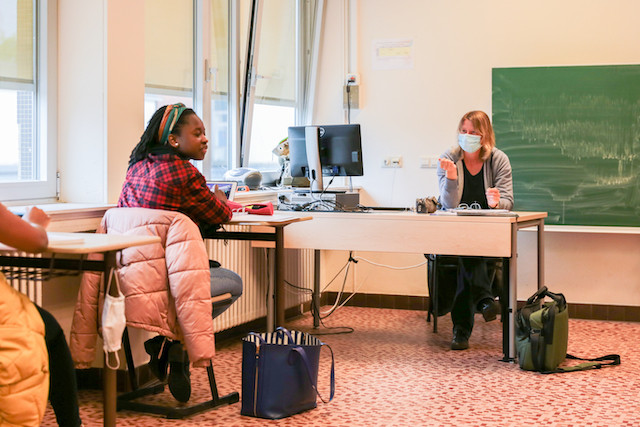In its second 2021 newsflash report published on Wednesday, the lobbying group pointed out that prior to the pandemic, Luxembourg struggled to make its education system more inclusive and equitable to integrate the country’s diverse demography, and these problems are being exacerbated by the pandemic.
It wrote:
“We must realise that the crisis is not yet over and that the real extent of the impact, and the after-effects of the crisis, will probably only be fully visible in a few years. In the future, the consequences may be negative for both students and companies in terms of the lack of learning outcomes for these young people and the problems that will arise when they enter the labour market.”
The emergency measures it sets out in the six-page report focus strongly on expanding on the refresher classes begun during the summer 2020 vacation. It suggests all schools offer support courses outside of school hours, as well as on Saturdays, and adjustments to the summer school to start courses earlier, “ideally as soon as the end of the school year, and to extend the period during which the students will be able to benefit from this offer.” These complementary classes should be offered in at least one subject, and include vocational and employer training.
It wants to see the school calendar modified so that the first two weeks of the 2021 term are dedicated to reviewing the previous year’s content “to cushion the learning loss and get the new curriculum off to a better start.” An exceptional extension of the school year, for example by two weeks in the 2021-2022 school year, could also be considered, particularly for vulnerable students, especially those who have to take deferral exams in the fall,” it writes.
All schools should, meanwhile, outline a three-year development plan and a post-covid action plan to plug learning gaps, accompanied by rigorous short-term monitoring of the results “to show an immediate and measurable impact of the crisis on education.”
For the latter, the education ministry has announced studies, including the EpStan tests, which showed homeschooling and the pandemic led to a decline in German listening comprehension at Grade 3, exacerbated existing learning gaps across the year groups. The chamber of commerce stressed the urgent need for in-depth analysis.
And to better support teachers in developing engaging online classroom environments and further using digital tools, the chamber suggests peer mentoring and including such skills in future teacher training.
The number of students dropping out of school in Luxembourg during the 2019-2020 school year remained stable at 1,670, within the 10% EU warning threshold. Nevertheless, the chamber of commerce points out that “the crisis is not yet over and the real extended impact and the traces of the crisis will probably not fully emerge for several years.”
